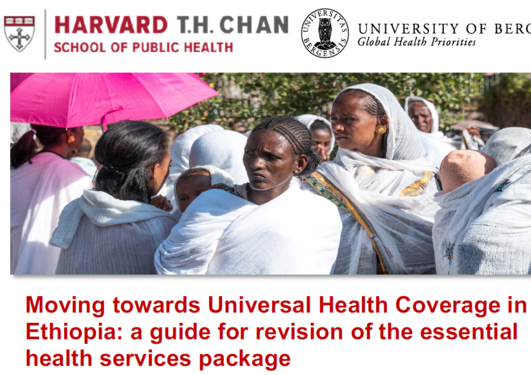Disease Control Priorities-Ethiopia
The DCP-E project intends to bring evidence and methods of priority setting and health economics closer to policy decision-making in Ethiopia.
Main content
The prestigious Bill & Melinda Gates Foundation (BMGF) project will involve capacity-building at Ethiopia’s Federal Ministry of Health (FMoH). Entitled Disease Control Priorities-Ethiopia (DCP-E), the project will train Ethiopian researchers and policymakers in health economics, decision sciences and priority setting. The training will enable them to generate an evidence base for designing, developing and implementing essential health services for FMoH, and may be used, in particular, to help revise Ethiopia’s current essential health services package.
To achieve this purpose, three objectives are important:
- To develop health economic evaluation and priority setting capacity in Ethiopia.
- To provide input, through research and evidence, to the revision of the essential health care package for Ethiopia.
- To establish a process to support health priority setting in Ethiopia, including assessing the cost-effectiveness of selected health sector interventions, packages, and delivery platforms.
The project is a collaboration between Ethiopia’s Federal Ministry of Health, Ole Frithjof Norheim professor in medical ethics, Department of Global Public Health and Primary Care at the University of Bergen and Stéphane Verguet, Assistant Professor of Global Health at the Harvard T.H. Chan School of Public Health, Harvard University.
The three organisations have been working together since 2015 to strengthen the health economics and priority-setting capacity of researchers and decision-makers in Ethiopia and thereby contribute to better and fairer priority setting in the Ethiopian health services. The BMGF funding will make it possible to train more individuals in these skills. The project will train some as Master students, some as PhD students, while others will receive in-service, profession development, and short-course training. The data generated by the student research will provide the basis for evidence-based decision-making and priority setting.






